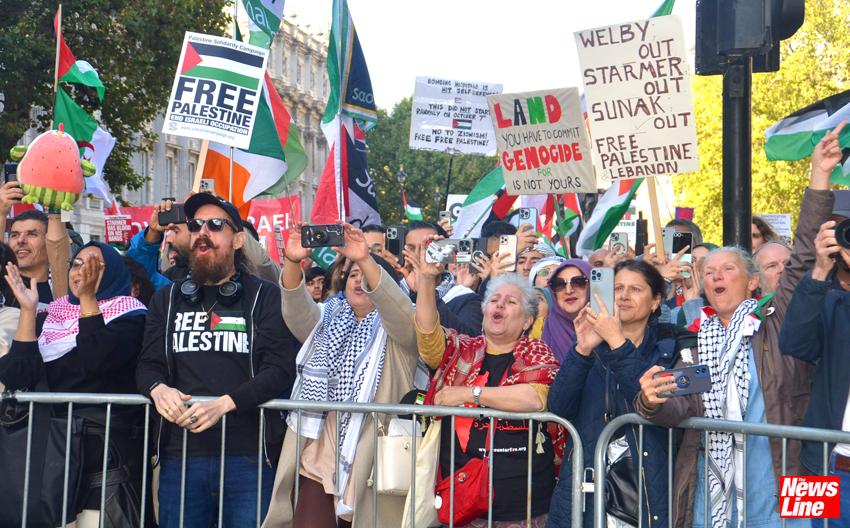THE ISRAELI military announced on Thursday that it killed Hamas leader Yahya Sinwar in Rafah in the southern Gaza Strip.
Sinwar was reportedly killed on Wednesday by ground troops who did not realise they were engaged with Israel’s most-wanted man, apparently having no prior intelligence of his location.
Israel’s police claimed that ‘dental records and fingerprints have allowed definitive identification of Sinwar’s remains.’
Graphic images and videos purportedly showing Sinwar’s body were published by Israeli media.
Sinwar succeeded Ismail Haniyeh as Hamas leader after the latter was killed in July in Tehran, where he was a guest for the inauguration of Iranian President Masoud Pezeshkian.
US President Joe Biden has welcomed the killing of Sinwar, calling it ‘a good day for Israel, for the United States, and for the world’.
In a statement, Biden said that he had ‘directed Special Operations personnel and our intelligence professionals to work side-by-side with their Israeli counterparts to help locate and track Sinwar and other Hamas leaders hiding in Gaza’.
Biden asserted that with the killing of Sinwar, ‘there is now the opportunity for a “day after” in Gaza without Hamas in power.’
But Benjamin Netanyahu, the Israeli prime minister, made clear that the war would go on and said that the killing of Sinwar marked ‘the beginning of the day after Hamas.’
‘Today, as we promised we would, we settled accounts with him. Today, evil suffered a heavy blow, but our mission is not yet completed,’ Netanyahu said in a video statement.
Israeli propagandists may have thought that publishing photos and videos of Sinwar’s last moments and his lifeless body would instil feelings of defeat and humiliation among supporters of the Palestinian resistance.
The images have instead had the opposite effect, and will only cement his already legendary status. They show that Sinwar died in combat like a rank-and-file fighter – in perhaps not his first direct engagement with Israeli troops – rather than accepting exile or being killed in retreat.
Suheib Alassa, an Al Jazeera correspondent, said that ‘Israeli intelligence and US and British aircraft failed to find a thread that would lead them to Sinwar, who even the smartest war and intelligence experts did not expect to be fighting directly in the battle.’
That Sinwar was on the front lines meant that Hamas fighters were organised and operating under ‘precise plans, regardless of the commander’s name or location’, according to Alassa.
Military analyst, Elijah J. Magnier, said that Sinwar’s ‘decision to remain at the forefront of the conflict highlighted his willingness to share the same risks and sacrifices as the civilians and fighters of Gaza, reinforcing the idea that Hamas’ leaders would not abandon their people in times of hardship’.
Magnier added that the nature of Sinwar’s death ‘communicates to the people of Gaza that their commanders are as committed as they are, and that they too are prepared to face the ultimate sacrifice.’
Sinwar was born in Gaza’s Khan Younis refugee camp in 1962, his family originally hailing from Majdal, renamed Ashkelon after its conquest by Zionist forces in 1948.
Like other resistance leaders who were killed before him, Sinwar said that martyrdom was the greatest gift that the occupation could give him.
Around 20 years ago, Sheikh Ahmed Yassin, one of the founders of Hamas, said that he was not deterred by Israeli assassination threats, saying that ‘if I saw the rocket coming I would jump and hug it’, adding that ‘if they kill Ahmed Yassin another 100 Ahmed Yassins will grow up’.
‘We are not afraid of their threats,’ Yassin said, just a few months before he was assassinated in a missile strike in Gaza City in 2004.
Sinwar was a personal assistant to Yassin and spent nearly a quarter of a century in Israeli prison, during which time he learned Hebrew and devoted himself to studying Israeli politics and society while also producing several books and translations related to Israel and Palestinian political strategy.
In 2021, in his last interview – the only sit-down interview he ever gave to an English-language outlet – Sinwar said that with its state-of-the-art weaponry, Israel ‘intentionally bombs and kills our children and women’.
‘You can’t compare that to those who resist and defend themselves with weapons that look primitive in comparison,’ he said.
The resistance will defend its people with whatever means it has, according to Sinwar.
‘What are we supposed to do? Should we raise the white flag?’ he asked rhetorically.
‘That’s not going to happen,’ he said, and lived up to that promise.
